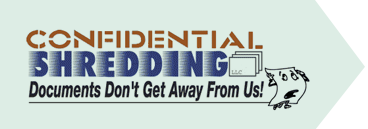Introduction
In today’s digital age, healthcare professionals and organizations rely heavily on electronic health records (EHRs) and secure online platforms to manage patient information. However, the healthcare industry still generates a significant amount of paper documents and records. Doctors, in particular, handle a multitude of sensitive patient information in paper format. Ensuring the confidentiality and security of this information is paramount. This is where paper shredding plays a crucial role in maintaining patient privacy and compliance with data protection regulations.
Why Doctors Need Paper Shredding
Patient Confidentiality
Patient confidentiality is a cornerstone of medical ethics, and doctors are legally and ethically bound to protect the privacy of their patients. Medical records contain highly sensitive information, including medical history, treatment plans, test results, and personal data. Storing or disposing of these documents improperly can lead to breaches of confidentiality and put patients at risk.
Legal Requirements
Healthcare providers are subject to various laws and regulations that mandate the secure handling and disposal of patient information. In the United States, the Health Insurance Portability and Accountability Act (HIPAA) requires healthcare professionals to safeguard patient information, which includes secure disposal methods like shredding for paper records. Non-compliance with HIPAA can lead to severe penalties, including fines and legal consequences.
Preventing Identity Theft
Improperly disposed medical documents can be a goldmine for identity thieves. Patients’ personal information, such as Social Security numbers, addresses, and financial details, is often present in medical records. Confidential Shredding can ensure that identity theft risks are mitigated, protecting both patients and healthcare providers.
Mitigating Data Breaches
Data breaches in the healthcare sector can result in reputational damage, legal consequences, and significant financial losses. Paper records are vulnerable if not properly destroyed, as they can be stolen, accidentally left unattended, or improperly discarded. Shredding paper documents makes it nearly impossible for unauthorized individuals to access sensitive patient data.
Environmental Responsibility
While the primary goal of paper shredding is to protect patient privacy, it also aligns with environmental responsibility. Many medical facilities generate a substantial volume of paper waste, contributing to deforestation and environmental degradation. Shredded paper is easier to recycle, reducing the environmental footprint of healthcare practices.
Best Practices for Paper Shredding
Secure Shredding Services
Healthcare providers should partner with Confidential shredding, a provider who specializes in handling sensitive medical documents. These services typically offer secure containers for collecting documents and ensure compliance with data protection regulations.
Regular Shredding Schedule
Establish a regular schedule for shredding paper documents. This ensures that records are disposed of promptly and minimizes the risk of accidental exposure.
Document Retention Policies
Develop clear document retention policies to determine when and how long paper records should be retained. Once a document reaches the end of its useful life, it should be promptly and securely shredded.
Employee Training
Educate your staff on the importance of proper document disposal and the potential risks of mishandling sensitive information. Training ensures that everyone in the organization is aware of their role in maintaining patient privacy.
Conclusion
For doctors and healthcare providers, paper shredding is not just a matter of convenience; it’s a critical aspect of maintaining patient privacy, ensuring legal compliance, and safeguarding sensitive information. By implementing secure paper shredding practices with Confidential Shredding, doctors can focus on what matters most—providing quality healthcare to their patients—while also protecting their patients’ confidential information from potential breaches and identity theft. This approach not only fulfills legal obligations but also upholds the ethical principles of the medical profession.

